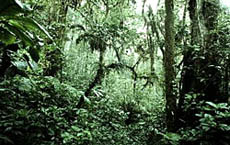
The peat swamp forest on the Kampar Peninsula is one of the world’s largest, with decomposed trees and plants piled 50 feet deep in spots. Billions of tons of carbon dioxide are locked away in this waterlogged land, but when drained or cleared, it releases many times more carbon dioxide than even a clear-cut rain forest.
Into this once nearly impenetrable wilderness, home to Sumatran tigers, bears, crocodiles, and other wildlife, humans are slowly encroaching. Small fishing camps are found along the creeks, a growing village borders a large canal, and illegal loggers have established bases on the edges of the forest. As a result, an area serving as a vault for vast amounts of carbon dioxide is beginning to leak.
Asia Pacific Resources International Holding Limited, known as “APRI L,” proposes to protect the peninsula’s peat swamp core by surrounding it with industrial tree plantations, which are a vital component of Indonesia’s economic development. The plan would allow the company to expand its operations while also potentially collecting valuable carbon credits. It could sell the credits to industrialized nations attempting to meet reduced emissions targets.
Environmental groups are generally unhappy with APRI L’s plan. They see the credits as a reward to a company that has destroyed large tracts of rain forest in Sumatra and as much as two-thirds of the forest in some provinces. Yet the threat posed by illegal loggers who clear-cut large chunks of land and migrants who use slash-and-burn techniques to clear the land for agriculture is imminent, and the Kampar Peninsula is already showing signs of degradation.
APRIL claims that the ring of acacia plantations it plans to build around the core will block further encroachment, and even environmental groups acknowledge that the company’s system of dams and canals have minimized leakage from the peat. Incentives make strange bedfellows or, in another light, encourage cooperation.


